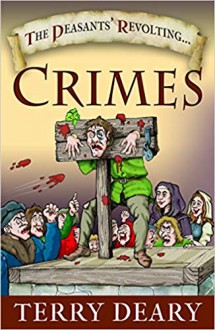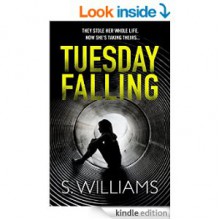
Thanks to Rosie Croft from Pen & Sword for sending me an early paperback copy of this book, which I freely chose to read and review.
I’ve long been intrigued by the Horrible Stories books, and when I saw the stage adaptation advertised, I thought about going to watch it, but, as was the case with the books, I never managed to make it. That, combined with my interest in criminology and the criminal justice system (particularly in the UK), made this book irresistible. Although I cannot compare it to other books by the authors, and must warn readers that this is, by no means, a book written for children, I loved every minute of it. The author combines a vast number of UK historical (and also some fairly recent) facts and events, with a sharp sense of humour (beware of papercuts. Some pages ooze poison), to the point of crossing into satire and black humour at times. The book shows a great deal of social consciousness, and it is far from complacent with the status quo, but it does not glamorise “peasant criminals” either, and it is harsh on popular renderings of figures like the highway man (Dick Turpin is no favourite), or pirates.
Deary explains in his introduction (after three great quotes, and there are many interspersed throughout the whole text) the reason why he decided to write the book. He observes that most books and plays featuring crimes and criminals tend to focus on kings, queens, or high-class characters (he mentions Shakespeare and Agatha Christie), and even when lower class characters are mentioned, they are not usually the heroes or the central figures. And he decided it was time to put it right, and here we have this book. As you can imagine from the topic and the title, there is plenty of gore, detailed accounts of crimes and punishments, and despite the wit and the humour, I’d recommend caution to those who prefer a truly light and cosy read.
The book is divided into seven chapters, plus the already mentioned introduction, an epilogue where the author reflects upon how little things have changed over the years, and an index. The chapters seem to follow a chronological order (or almost): Norman Nastiness, Mediaeval Misery, Wild Women, Tudor Twisters, Sinful Stuarts, Quaint Crimes, Georgian Jokers and Victorian Villains, but the content of each individual chapter is not limited to the period mentioned in the title. Every chapter focuses on a series of crimes that became typified or described for the first time in that historical period, or that are particularly associated with it, but Deary sometimes includes recent examples of similar crimes, to compare the types of punishment then and now or to emphasise the fact that history repeats itself and certain things change little, if at all. Although I have lived in the UK for many years, I didn’t grow up here, and there are periods of UK history and events that I’m not familiar with, so it is likely that much of the information that was new to me might be well-known to others, but the author presents it in an entertaining and seemingly light-hearted manner (I’d leave that to readers’ interpretation and opinion) that makes the book impossible to put down and the facts stick in one’s mind.
I, for one, was fascinated to read about football hooligans and their shenanigans as far back as the 1100s, about clan clashes, to discover the origin of ‘brawling’ (quarrelling in a church or a churchyard), to read about wife-selling (and how it often seemed to be a good option if divorce was not an option and both parties wanted out, no matter how illegal)… And yes, husband-selling also took place. Deary writes also about peasant revolts, about the machine wreckers of the Industrial Revolution era, or the many attempts on Queen Victoria’s life. I don’t want to spoil the book for you, so I won’t go into more detail, but apart from managing to cover a lot of ground, and having a knack for finding the perfect quote, Deary’s sharp wit and his talent for highlighting the connections between historical events and the present make this book a must read for those interested in crime, criminology, and UK history in general. Especially if they have a slightly twisted sense of humour.
I marked so many pages of the book that I had difficulty choosing a few to share here, but I’ll try to give you some sense of what you might expect from the book.
Here is one of his notes (they are priceless) in reference to Shakespeare’s Titus Andronicus.
Some critics interpret eating your sons, not so much as ‘cannibalism’ as ‘incest’. Whatever the legality of eating your children, just don’t try it at home.
In Chapter 2, Mediaeval History:
Peasants were at the bottom of the feudal system pyramid. And if you were at the bottom of a pyramid you’d be crushed. As if that weren’t enough, your evil lord made you work like a slave labourer; meanwhile, your Good Lord sent you something to help relieve your misery. He sent you plagues.
This reflection seemed particularly relevant to some recent events in my country.
The Seditious Meeting Act was passed in March 1817. What constituted ‘sedition’, you might ask? Well, like ‘treason’, pretty much anything the Lord Lieutenants of the counties fancied, really.
The book ends in a hopeful note, well, sort of, but not quite.
In summary, this is a great book for people interested in the history of crime and the criminal justice system (and history in general) in the UK, particularly if they enjoy a humorous and ironic take on received wisdom. I am sure fans of Deary will enjoy it as well, but, despite the cover, this is not a book for young children, and I’d advise parents to check it out to decide its suitability for themselves. The book’s back cover states that the author is working on The Peasants’ Revolting… Lives, and I’ve added it to my wish list already.

 Log in with Facebook
Log in with Facebook 











